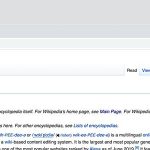Protect your Identity from Theft
Elizabeth* only discovered something was wrong when she opened her mail. It was a bill for hundreds of dollars from a company she had no previous contact with, for a new mobile phone and contract that had been applied for online.
Instances of identity theft, where an individual’s identity is assumed and potentially used for committing a crime such as fraud or theft, is an ever-present threat to the community.
According to the Australian Bureau of Statistics (ABS), an estimated 1.6 million Australians aged 15 and over (or 8.5% of the population) are victims of personal fraud each year, while a staggering 56% are exposed to at least one scam.
Identity Crimes Cost Billions
Recent estimates by the Attorney-General’s Department indicate that:
“Identity crime costs Australia upwards of $1.6 billion each year, with the majority (around $900m) lost by individuals through credit card fraud, identity theft and scams.”
However, with more and more Australians becoming used to giving out personal information online, whether on social media, to purchase goods, or communicate with service providers, many are becoming complacent to the risks. Theft of physical or hard copy identity documents also continues to be commonplace.
Criminals may use your identity in a multitude of ways, from applying for a financial service in your name, using your credit card to run up debts, applying for Commonwealth benefits, obtaining a drivers licence, passport, or even a job, to applying for a mobile phone contract in your name, as in Elizabeth’s case.
Although Elizabeth had not lost any ID, she told police she had possibly disclosed her home address and date of birth on Facebook.
How to Protect Yourself
To protect yourself from identity theft, there are a number of precautions you can take:
Adopt a ‘need to know’ approach to your personal data. If someone calls claiming to be from your bank, or offers you the chance to win a prize, and asks for personal information such as your credit card number or licence, ask yourself why they would need to know this.
Secure your letterbox with a lock. When travelling, arrange for Australia Post to hold your mail, or ask someone you know well and trust a neighbour, friend or family member to collect it for you.
Check monthly bank statements to make sure there are no unauthorised withdrawals or charges. Report any suspicious transactions to your financial institution immediately.
Periodically request a copy of your credit report to check no accounts have been wrongfully opened in your name.
Shred personal and financial papers when no longer required, or store them in a secure place.
Avoid using unsecured wireless ‘hotspots’ or public computers for internet banking, and only used trusted online payment websites for purchases.
Be wary of submitting copies of personal identification documents in response to employment or rental ads. Confirm the legitimacy of the company first.
On social media, take care not to place personal details such as your date of birth and address on your public profile.
What do YOU need to do from this list to protect yourself from identity theft? Take action today to avoid becoming another statistic.
Useful resources
Request a copy of your credit file from Veda Advantage.
Information about new methods of identity crime and emerging scams can be found on the Australian Competition and Consumer Commission’s SCAMWatch website.
To report a scam or your suspicions that a crime has been committed, contact the Australian Cybercrime Online Reporting Network (ACORN).
If you suspect you have been a victim of identity theft, report the matter to your local police.
*Not her real name.




